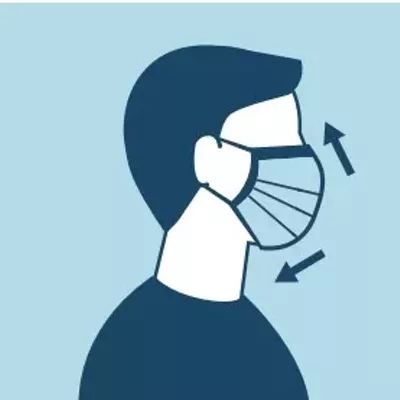Meanwhile, another important change at Tucson Medical Center was little noticed: The abrupt closure last month of TMC's Generations program for psychiatric patients 65 and older has professionals in the field extremely concerned.
"It will have a serious impact on the community," predicts former program director Terri Waldman. "We saw 325 to 400 patients a year."
"Many of these people have not had mental illnesses before," Waldman says about the program participants. "But now, they face depression, dementia or the loss of a spouse. It's a different population that needs different care."
Instead of receiving that age-specific treatment, these seniors will be lumped into the general adult psychiatric population at TMC. That's not ideal, according to Waldman and others working in the geriatric psychiatry profession.
For years, the Generations program addressed this essential need. Established at El Dorado Hospital in the early 1990s, it provided 14 beds for senior patients who stayed an average of nine days. While in the hospital, a team of professionals worked with each patient.
"We had a very comprehensive treatment team," states Dr. Christopher Wiegand, who, along with Dr. Kevin Goeta-Kreisler, headed the staff of professionals on a contract basis. "Everyone was on the same page providing quality care to optimize the quality of life for the patients."
Goeta-Kreisler says that last year, after TMC decided to close El Dorado as a medical hospital, they were told the Generations program would stay at El Dorado and be expanded to 24 beds. But those plans also changed, and last August, the program was shifted to Palo Verde Hospital, a mental-health facility located on the TMC campus.
With Generations reduced to eight beds, Goeta-Kreisler says that plans were drawn up to increase the unit to 10 beds, and money was set aside to implement the expansion. Then, in late April, Waldman--who, by that time, was the administrator of Palo Verde--became one of the dozens of people laid off by TMC for budget reasons.
With its chief advocate gone, the future of the Generations program was in doubt.
On May 18, Goeta-Kreisler remembers, then-TMC CEO Frank Alvarez called him into his office. "You know why you're here, don't you?" the doctor recalls Alvarez as saying. "But I had no idea."
Alvarez informed Goeta-Kreisler that Generations would be shut down in June, because, as the doctor remembers him saying: "The number of adult (mental-health) patients in the emergency room was out of control."
TMC spokeswoman Julia Strange acknowledges that Generations was a "great program" at El Dorado. But she also says: "In early 2007, we saw rapid growth in the number of adult behavioral-health patients, and we had nowhere to put them, so we had to put them in the emergency room, which is not good.
"We went from 50 (of these patients) per month to more than 200," Strange says, "so we had a greater need for adult psychiatric beds. We had a critical need for these beds. It was decided to use Palo Verde Hospital for that, and to discontinue the Generations program."
Strange says she doesn't know what caused the sudden increase in the numbers of general adult psychiatric patients, but points to Tucson's rapid growth as one possible explanation.
"We needed to find a quick solution," she says.
Waldman believes construction and staffing costs, along with other expenses, may have played a part in TMC's decision to terminate Generations; nonetheless, Goeta-Kreisler and Wiegand were dismayed at the way the program was shut down.
"The process used to close it was not good for the community," says Goeta-Kreisler.
Wiegand adds: "At no point were we involved in the discussion. We could have offered ideas to keep the program while expanding other services."
Currently, senior-citizen psychiatric patients are still admitted to Palo Verde, but they no longer have access to an age-specific treatment program like Generations.
Wiegand and Goeta-Kreisler hope a similar program can be re-established somewhere in town, but they say most medical hospitals aren't interested. A spokesman for Sonora Behavioral Health Hospital indicates they aren't, either, since that type of program usually works better in a medical hospital, where a patient's physical and mental problems can both be treated.
On the other hand, Kino Hospital may be interested. Voters last year approved the construction of a 96-bed psychiatry facility on the hospital's southside campus, and when it opens in early 2010, it will include a geriatric unit, according to spokeswoman Sarah Frost.
Even given that, Goeta-Kreisler says: "The need (for geriatric psychiatric services) is enormous as the community continues to grow."
Waldman adds: "Let's be blunt: In the field, many professionals don't like working with geriatrics. Plus, there's not a warm, fuzzy feeling in the community toward this population."
If something isn't done, Waldman predicts two negative outcomes.
"Emergency rooms will be full of older individuals who could use mental-health stabilization," she says, "and assisted-living facilities, adult-care homes and nursing homes will have to look at different ways to stabilize these patients in place."










